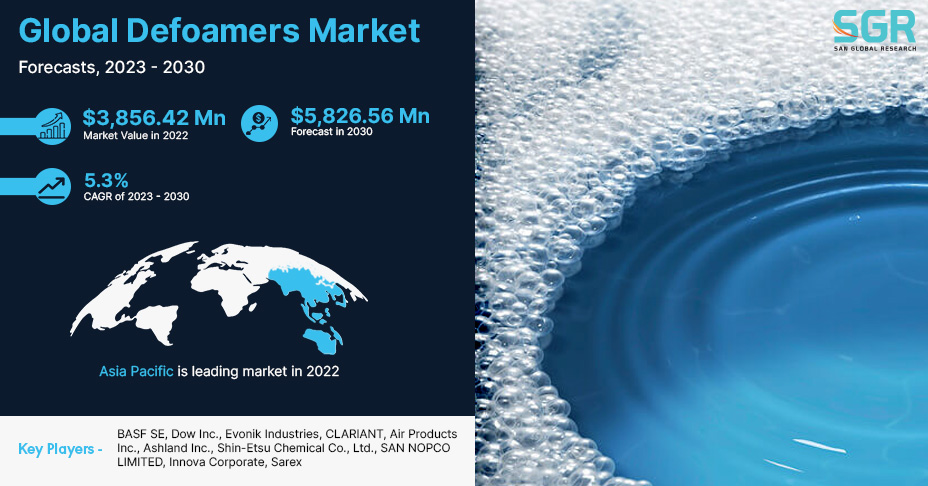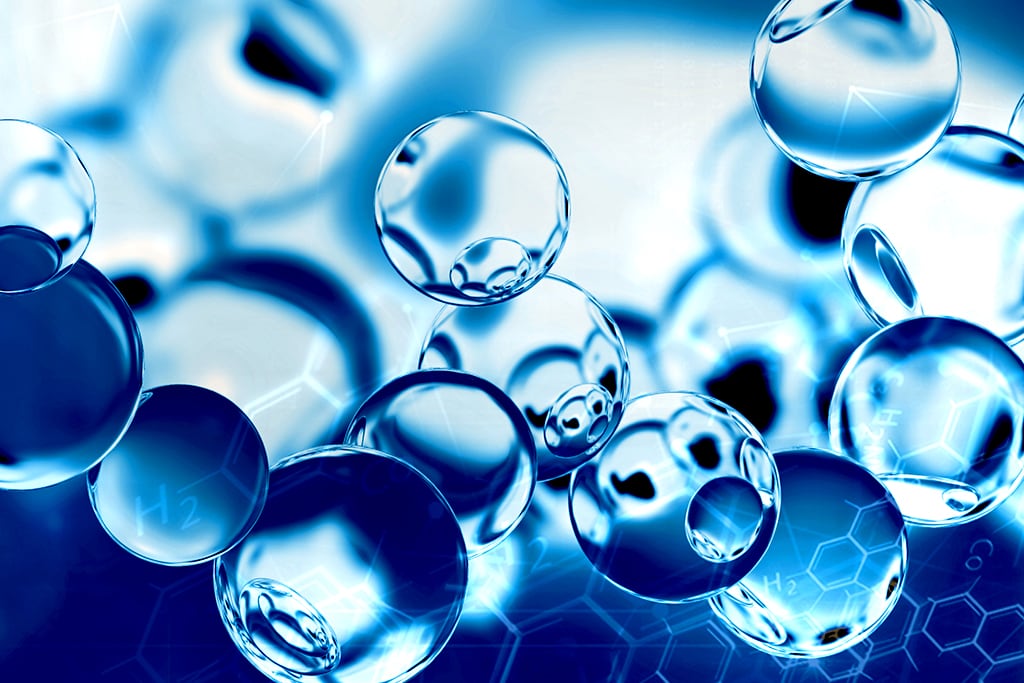Choosing the Best Defoamers for Your Manufacturing Line
Choosing the Best Defoamers for Your Manufacturing Line
Blog Article
The Role of Defoamers in Enhancing Item Quality and Efficiency
Defoamers offer as essential ingredients that reduce this problem, making certain smoother manufacturing operations while boosting the practical and aesthetic attributes of the final products. The choice of the suitable defoamer can be essential to achieving ideal results, elevating essential inquiries regarding formulation compatibility and performance metrics that warrant further expedition.
Understanding Defoamers
Recognizing the function of defoamers is crucial for preserving product high quality across different sectors. Defoamers are chemical additives made to prevent the development and reduce of foam in fluid systems, which can adversely affect procedures such as mixing, filling up, and surface area stress. Lathering can lead to ineffectiveness, product defects, and compromised aesthetic appeal, making defoamers an important component in manufacturing procedures.
In commercial applications, defoamers assist to enhance product uniformity and security. The effective use of defoamers not only guarantees smoother production processes however also contributes to premium item performance.
Additionally, the selection and solution of a defoamer need to straighten with certain application demands, such as compatibility with other active ingredients, performance under varying temperature level and pH problems, and potential regulatory restrictions. Eventually, comprehending defoamers' features and their relevance in different solutions is essential for maximizing manufacturing and ensuring the best quality end items.
Types of Defoamers
Defoamers can be classified right into numerous types based upon their structure and device of activity. The key kinds include silicone-based, non-silicone natural, and inorganic defoamers.
Silicone-based defoamers are amongst the most effective, mainly due to their capacity to spread out quickly on the fluid surface area and interfere with foam formation. Their special chemical framework allows for exceptional stability, making them suitable for high-temperature applications and settings with differing pH levels.
Non-silicone organic defoamers, often composed of all-natural oils or fats, are valued for their biodegradability and lower toxicity. These are typically utilized in food and beverage applications where safety and ecological effect are extremely important.
Not natural defoamers, which include substances like talc or calcium carbonate, act by increasing the thickness of the fluid, thus lowering foam stability. They are frequently utilized in commercial processes where compatibility with various other materials is not an issue.
Each kind of defoamer has distinct benefits and restrictions, enabling customized solutions relying on the particular foaming issues experienced in different applications. Recognizing these distinctions is important for optimizing efficiency and attaining preferred product high quality.
Applications Throughout Industries
Numerous markets utilize defoamers to enhance product top quality and functional efficiency. In the food and beverage industry, defoamers are crucial in procedures such as developing and milk production to avoid foam development, which can result in inadequacies and product disparity. By regulating foam, makers can make certain better return and an extra uniform product.
In the pharmaceutical market, defoamers play an important role in the formulation of liquid medicines, where extreme foam can hamper mixing and precise dosing. Their usage helps maintain the integrity of the solutions and assists in smoother production processes.
The paint and finishings market likewise depends on defoamers to improve the efficiency of items during application. By minimizing foam, these ingredients make sure a smoother surface and boost the aesthetic top qualities of the final product.

Benefits of Using Defoamers
While the application of defoamers varies throughout industries, their advantages continually enhance product quality and procedure efficiency. One significant advantage is the decrease of foam formation during producing procedures, which can otherwise lead to production delays and incongruities in item quality. By reducing foam, defoamers allow a smoother flow of products, promoting much more effective operations and reducing the likelihood of tools malfunctions.
Additionally, the use of defoamers can boost the look and texture of end products. In sectors such as coatings, paints, and food handling, extreme foam Discover More Here can compromise the aesthetic aesthetic appeals and overall top quality, while the proper defoamer application guarantees a consistent finish and desirable attributes. Additionally, defoamers can add to set you back savings by decreasing waste during manufacturing and optimizing using basic materials (defoamers).

Picking the Right Defoamer
Selecting useful source the best defoamer is vital for maximizing manufacturing procedures and making sure item top quality. The selection of defoamer affects not just the efficiency of foam control however additionally the total efficiency attributes of the end product. Elements to think about consist of the kind of application, the chemistry of the formulation, and the environmental problems under which the item will certainly be made use of.
Various markets may require specific defoamer types, such as silicone-based, organic, or polymeric defoamers. Recognizing the compatibility of the defoamer with the key components is vital to prevent negative reactions that could endanger item integrity. In addition, the defoamer's efficiency in different more info here temperatures and pH degrees need to be assessed to ensure consistent efficiency.
Checking the defoamer in small-scale applications can supply beneficial understandings into its performance and viability. Consideration of governing compliance, especially in food, drugs, and cosmetics, is paramount in choosing a defoamer. Inevitably, an extensive evaluation of these aspects will certainly result in the option of a defoamer that not only controls foam successfully but likewise boosts the quality and performance of the end product.
Verdict

To conclude, defoamers are necessary ingredients that substantially improve product high quality and efficiency throughout numerous industries. By properly reducing foam formation, these agents not only improve operational performance but also contribute to the practical and visual honesty of products. The strategic selection and application of defoamers result in cost financial savings, maximized source usage, and raised consumer contentment. On the whole, the significance of defoamers in commercial processes can not be overstated, as they play an important role in achieving constant and high-grade end results.
Foaming can lead to inefficiencies, item issues, and compromised visual appeal, making defoamers a vital part in making operations.

Report this page